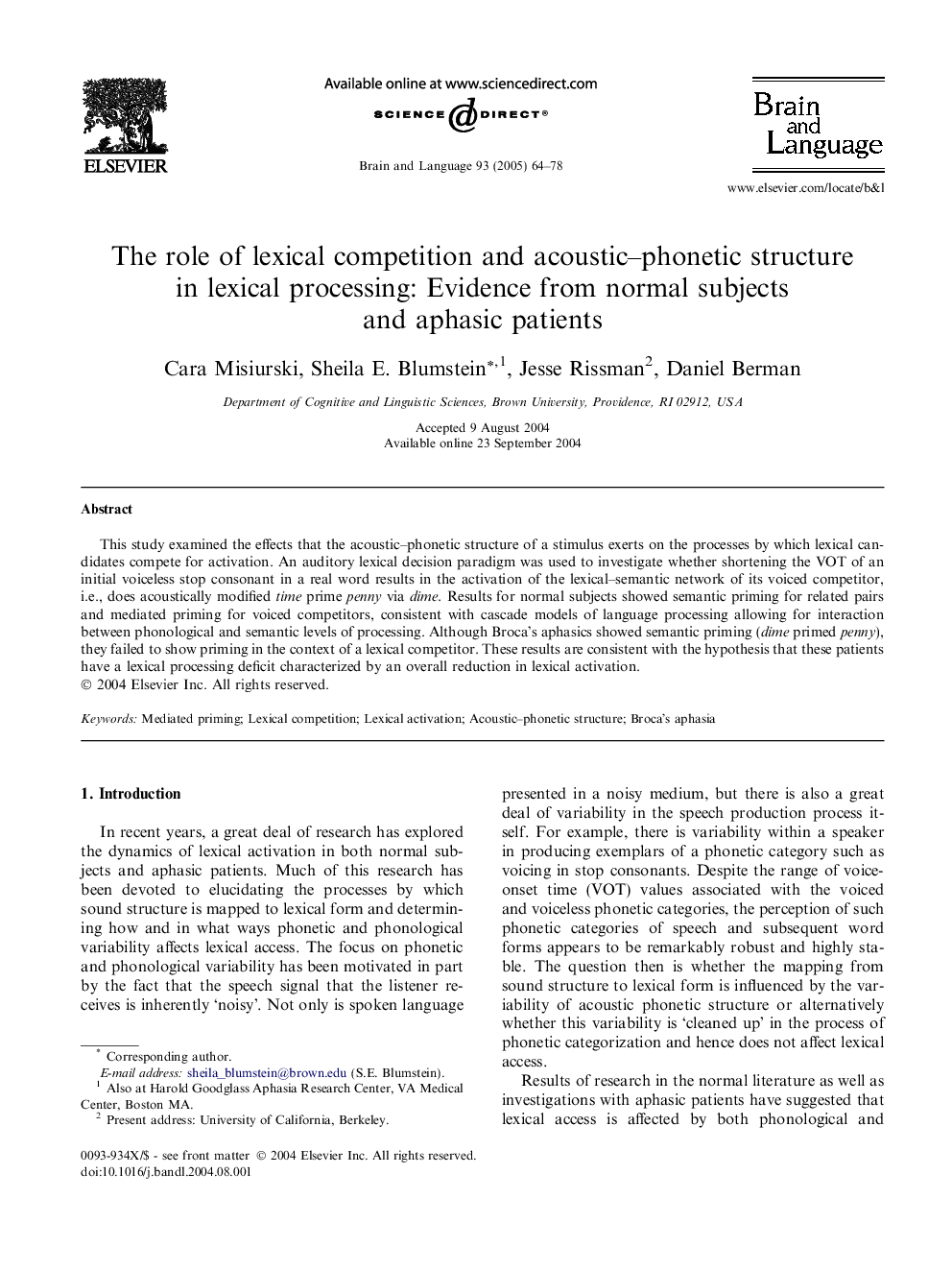| Article ID | Journal | Published Year | Pages | File Type |
|---|---|---|---|---|
| 10456858 | Brain and Language | 2005 | 15 Pages |
Abstract
This study examined the effects that the acoustic-phonetic structure of a stimulus exerts on the processes by which lexical candidates compete for activation. An auditory lexical decision paradigm was used to investigate whether shortening the VOT of an initial voiceless stop consonant in a real word results in the activation of the lexical-semantic network of its voiced competitor, i.e., does acoustically modified time prime penny via dime. Results for normal subjects showed semantic priming for related pairs and mediated priming for voiced competitors, consistent with cascade models of language processing allowing for interaction between phonological and semantic levels of processing. Although Broca's aphasics showed semantic priming (dime primed penny), they failed to show priming in the context of a lexical competitor. These results are consistent with the hypothesis that these patients have a lexical processing deficit characterized by an overall reduction in lexical activation.
Related Topics
Life Sciences
Neuroscience
Biological Psychiatry
Authors
Cara Misiurski, Sheila E. Blumstein, Jesse Rissman, Daniel Berman,
